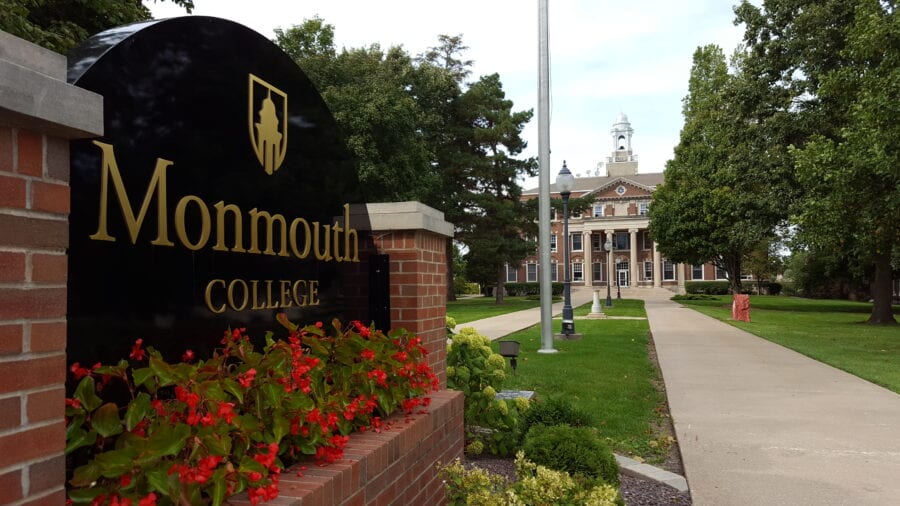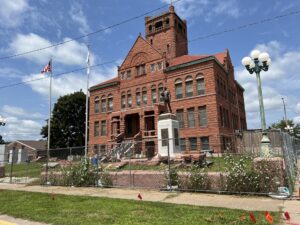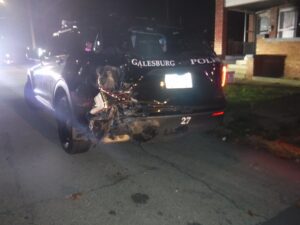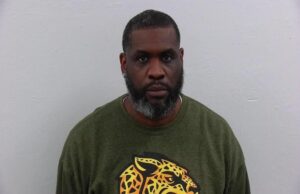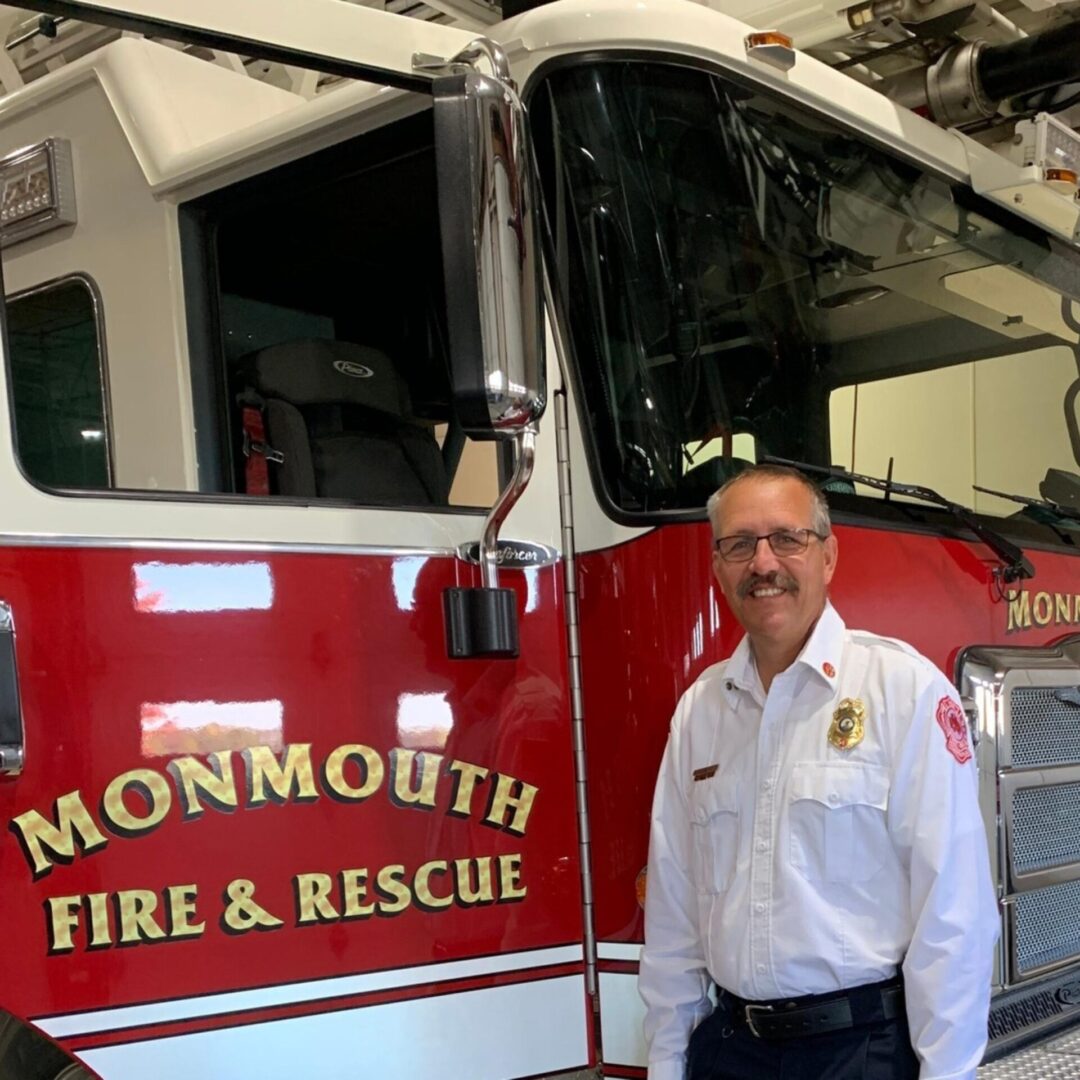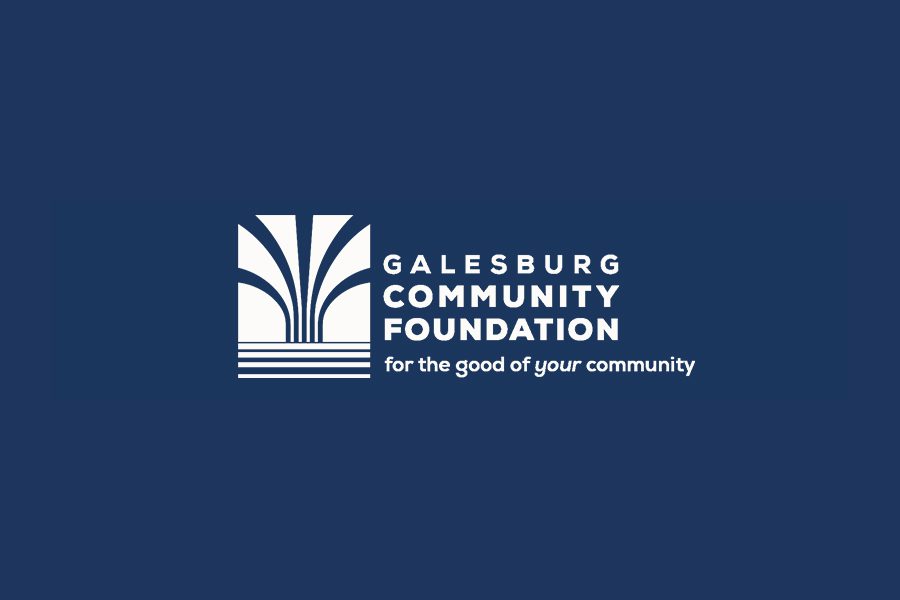Russia’s invasion of Ukraine is “a dark day for everyone” and it will have implications for geopolitics, U.S. politics and everyday American life, according to Monmouth College political science professors.
“Although the Russian invasion of Ukraine may seem distant, we are going to feel the effects of it in the United States whether we engage in military combat or not,” said Monmouth political science professor Andre Audette. “We will almost certainly have higher gas prices at a time where inflation is already hurting American consumers. I suspect that this will drive a deeper wedge through the current partisan divide. This is also another challenge to preserving the standing of democracy, rule of law and the international order.”
Department colleague Michael Nelson said “they’re at least six reasons why Americans should care about this story.”
“This is clearly a gross injustice against the Ukrainians, as a country and as a people. It’s also a clear violation of international law and norms at a scale that we have not seen in recent history, and that is something that should concern us all,” said Nelson.
Nelson said that Russia’s invasion is also “indicative of the rise of authoritarianism in the world.”
“It’s a challenge to democracies everywhere, and something we should be paying attention to,” he said. “It also threatens the peace and stability of Europe, and I think that’s also something that we should care about with our allies over there.”
Especially worrisome is that Russian military aggression “could be a signal to other countries.”
“A lot of people have their eyes on China and China’s actions with Taiwan,” said Nelson. “If we don’t respond well to Russia, then this could be an incentive for others to do similar actions, or Russia itself, in the future.”
The final reason that Americans should care about this war is because of assurances made to Ukraine shortly after it became an independent nation in 1991.
“Ukraine had nuclear weapons at the end of the Cold War, and in 1994, we made an agreement with the U.K. and with Russia and Ukraine that we would respect Ukraine’s sovereignty and that we would assure, not guarantee, their security,” said Nelson. “And so what President Joe Biden is doing right now is following through on the promises we made to the Ukrainians back in 1994.”
Limited options
Monmouth’s political science professors said that both domestic and military factors limit the U.S. response to the Russian invasion to severe political and economic sanctions.
“With Russia’s access to nuclear weapons and (Russian President Vladimir) Putin’s very clear declarations that anyone against him would face severe consequences, we have to recognize that we are also facing some concrete limits on what we can do here,” said Nelson. “And I think that that’s something that we’ll be facing over the next weeks, months to come. This is going to be tragic, horribly tragic.”
Audette said that Putin “seems to be taking advantage of the internal weakness and division in countries” such as the United States, where President Biden has limited options to respond to Russian aggression.
“Polls show that Americans are still reeling from long ground wars in Afghanistan and Iraq,” said Audette. “We are also highly polarized, and former President Donald Trump and his allies are casting Biden as a weak president while taking a tepid stand against Russian aggression. Even some in the Democratic Party are grumbling that the Russian issue will detract from Biden’s upcoming State of the Union address, Supreme Court nomination, and attempt to reset his political agenda ahead of the midterm election.”
Russians’ reaction
Political science professor Jessica Vivian said that Russians’ “appetite for this adventure” might also affect the outcome in Ukraine.
“The Russian people were considering this to be basically propaganda by the U.S.,” said Vivian. “They thought, ‘Of course, we won’t go to war with Ukraine.’ That’s because they think of the Ukrainians as their cousins, their brothers, their compatriots. Once the news starts penetrating the Russian population, how willing are they going to be to go along with that? Russia’s Crimean invasion (of 2014) was very popular at home, but there was not a shot fired. Widespread bombing is going to be a different situation.”
Nevertheless, Nelson said that for Europeans, the outbreak of war on the continent is scary.
“It’s something that was mostly unthinkable for a lot of people,” said Nelson. “We’re hearing that for a lot of Russians this was unthinkable. They didn’t recognize that their own leaders were going to take them to war in this way, and they’re only now awakening to that. It will be interesting to see how the Russian people react to this over the coming weeks as they face these sanctions, as they have to evaluate the actions of their own government. I hope that many of them will be disappointed and will act on that disappointment.”
Impact on U.S. elections
Audette said that Russia’s war on Ukraine could also affect this fall’s general elections in the United States.
“Political scientists often refer to the ‘midterm law,’ which means that an incumbent president’s party nearly always loses seats in Congress in the midterm election,” said Audette. “One exception to this was 2002 when there was a ‘rally-around-the-flag’ effect for George W. Bush and the Republicans after the Sept. 11, 2001, terrorist attacks. The difference between this election and that one, however, is that the country was relatively united in support of war, while today we face more polarization and division. It’s too early to tell exactly how this will impact the election, but there are relatively few scenarios I see in which it helps Democrats.”
Audette said that the Russian invasion of Ukraine could reshape the geopolitical map.
“Depending on how far Putin plans to take this, we may be in store for a vastly different world than we lived in yesterday,” said Audette. “It is a dark day for everyone.”
Founded in 1853 and affiliated with the Presbyterian Church (U.S.A.), Monmouth College provides a transformative educational experience within a caring community of learners. A residential liberal arts college that is the birthplace of the women’s fraternity movement, Monmouth College empowers students to realize their full potential, live meaningful lives, pursue successful careers, and shape their communities and the world through service and leadership.
***Report Courtesy of Monmouth College***


